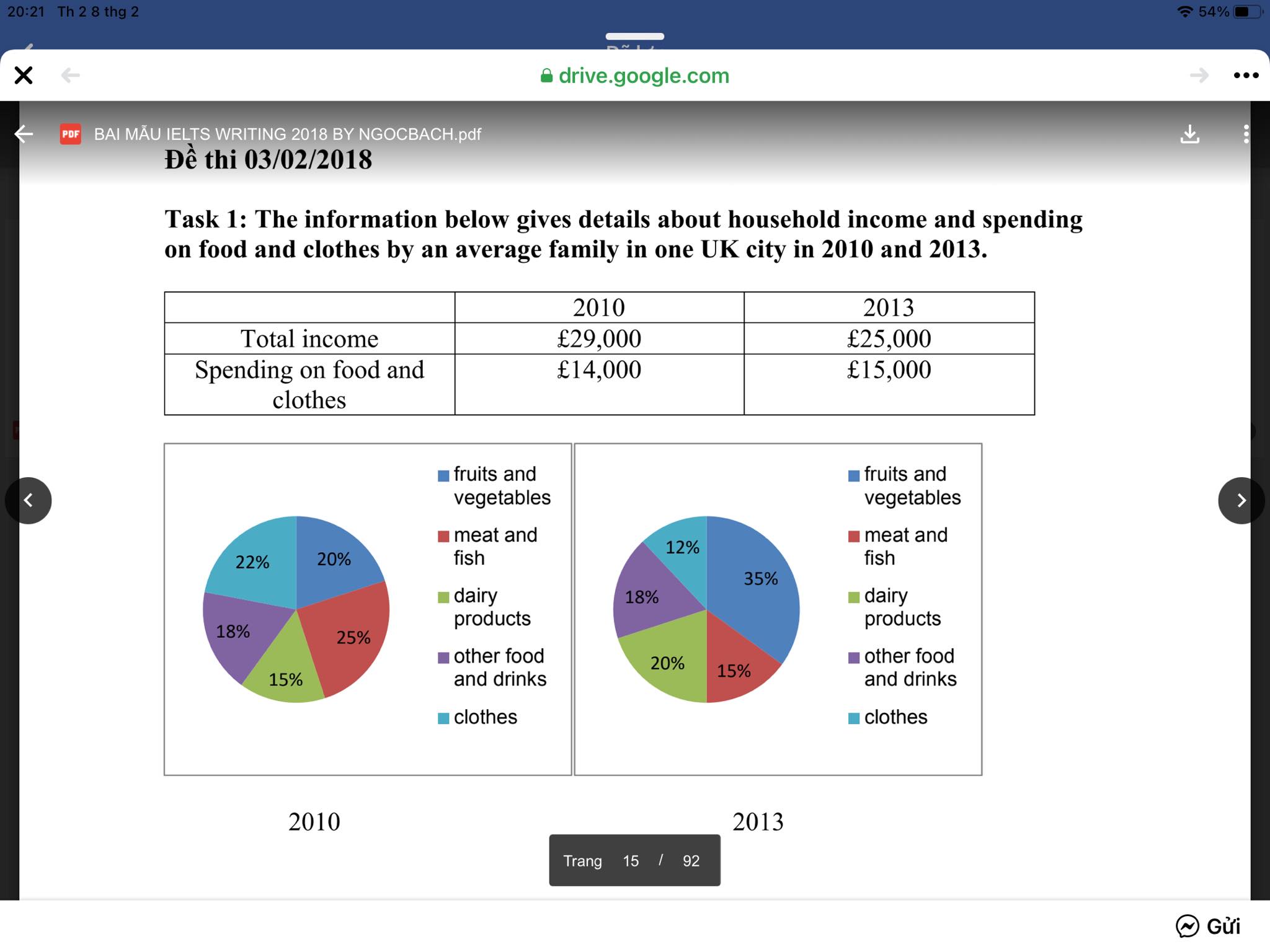vungocf1417
Feb 8, 2021
Writing Feedback / [Writing task 1] - Household income and spending on food and clothes in UK [5]
The table provides the amount one family in a city in the UK averagely earns and their specific expenditures on food and clothes in 2010 and 2013. And the pie charts give detailed comparison of spending on five main elements in the two given years.
It is easy to comprehend that although household income notably decreased by $4000, the budget allocated for eating and wearing slightly expanded. Spending on food dominantly accounted for more than three quarters in the two given years while expenditures on clothes took up a modest portion and was cut off roughly by half in 2013.
An interesting contrast can be seen in eatable products from plants and animals. Although in 2010 meat and fish cost the city's residents most with 20% spending, the figure drastically fell by 10% and ranked last among food and beverages in 2013. While fruits and vegetables' share rose significantly from a fifth to a third of total expense in two years and gained the dominant portion.
The rest of the expenditures on dairy products and other food and drinks did not witness considerable changes. Food from milk was consumed with 15% of spending in 2010 and rose to 10% in 2013 and other products remained unchanged with 18% over two years.
Thanks in advance for your feedback! <3
charts and table - analyse the information provided
The table provides the amount one family in a city in the UK averagely earns and their specific expenditures on food and clothes in 2010 and 2013. And the pie charts give detailed comparison of spending on five main elements in the two given years.
It is easy to comprehend that although household income notably decreased by $4000, the budget allocated for eating and wearing slightly expanded. Spending on food dominantly accounted for more than three quarters in the two given years while expenditures on clothes took up a modest portion and was cut off roughly by half in 2013.
An interesting contrast can be seen in eatable products from plants and animals. Although in 2010 meat and fish cost the city's residents most with 20% spending, the figure drastically fell by 10% and ranked last among food and beverages in 2013. While fruits and vegetables' share rose significantly from a fifth to a third of total expense in two years and gained the dominant portion.
The rest of the expenditures on dairy products and other food and drinks did not witness considerable changes. Food from milk was consumed with 15% of spending in 2010 and rose to 10% in 2013 and other products remained unchanged with 18% over two years.
Thanks in advance for your feedback! <3

146105629_2099885008.jpg
